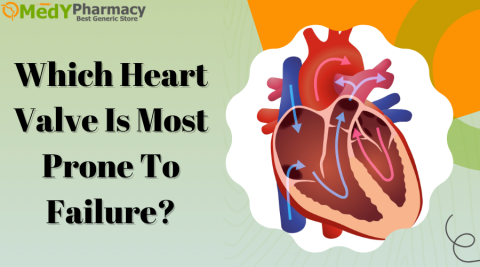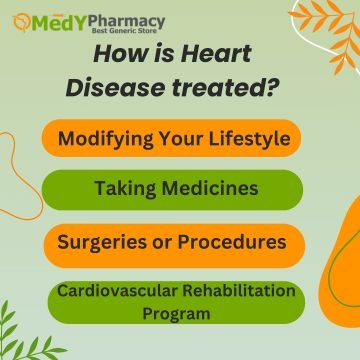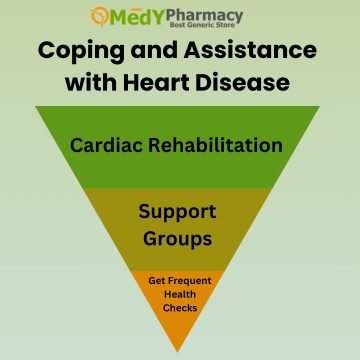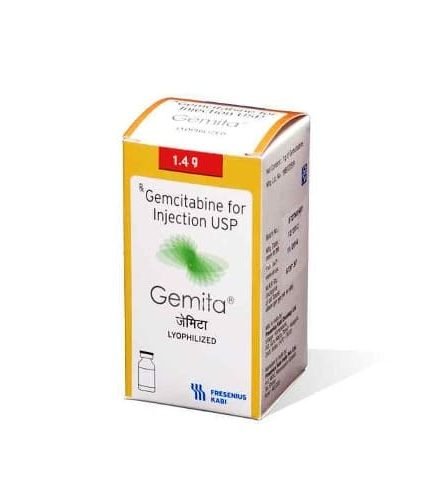Introduction:
It is not curable or reversible, but drugs, treatments, and lifestyle changes can alleviate many symptoms.
This arises when plaque forms in the arteries leading to the heart. This prevents nutrients and oxygen from reaching this crucial organ.
Often known as coronary heart disease (CHD), is the leading cause of adult death in the United States.
Plaque, a waxy substance composed of cholesterol, fatty molecules, and minerals, is the root cause of heart disease.
It builds up over time when the inner lining of your arteries is damaged by high blood pressure, smoking, or excessive cholesterol or triglycerides.
Learning about the causes and risk factors for this condition can help you avoid heart problems.
This is one of the main causes of death across the globe. Every year, over six million individuals die as a result of this ailment, which accounts for one out of every four deaths. This is the main cause of death for a variety of ethnic groups, including Caucasians, Hispanics, and Black people. Despite being one of the worst diseases, most people may avoid cancer by living a healthy lifestyle.
What Is Heart Disease?
This refers to a wide range of disorders that can affect the heart. When people think about heart illness, they often think of the most common variety, coronary artery disease, and the heart attacks that can result from it. However, you may experience issues with various components of your heart, such as your heart muscle, valves, or electrical system.
When your heart is not performing properly, it has difficulty delivering enough blood, oxygen, and nutrition to your body. In some ways, your heart provides the fuel that keeps your body’s systems functioning. If there is a problem with fuel delivery, it impacts all of your body’s functions.
Lifestyle modifications and drugs can help keep your heart healthy and reduce your risk of developing heart disease.
This is a broad word that encompasses a variety of heart issues. It is also known as cardiovascular disease, which refers to issues with the heart and blood vessels.
This is the largest cause of death in the United States, however, there are strategies to prevent and treat many different types of heart disease.
Who gets cardiovascular disease?
This is a universal disease. It is the main cause of death for a variety of groups, including whites, Hispanics, and Blacks.
While it can be fatal, it is also avoidable in most people. You can potentially live longer with a healthier heart if you adopt certain lifestyle choices at a young age.
How Frequent Is Cardiovascular Disease?
In 2021, one in every five deaths was caused by heart disease. That amounts to over 700,000 people. Coronary artery disease, the most common type, contributed to around 375,000 fatalities.
This affects people from all ethnicities, regardless of gender.
How Long Does It Take To Fully Recover From Treatment?
Depending on the surgery or procedure, recuperation time can range from a few days to several weeks. Minor operations may just require a few days for recovery. However, you may require two to four weeks to recuperate from minimally invasive surgery and six to 12 weeks to recover from open-heart surgery.
What Impact Does Genetics And Family History Have On The Risk Of Heart Disease?
Having family members who have or have had increases your chances of contracting the condition.
According to research, your genes alone can increase or triple your risk of having heart disease, especially when combined with lifestyle risk factors like smoking or poor nutrition.
A male parent with this may increase your risk of developing the condition slightly more than a female parent. You’re also at a higher risk if you have a sibling with heart disease, especially if they’re twins.
How Can Demographics Influence The Chance Of Developing Heart Disease?
Other biological factors may also increase your chances.
Belonging to historically marginalized communities is another element to consider. According to research, 24% of persons of South Asian heritage acquire heart disease, while only 8% of white people do.
When it comes to race, white individuals have a risk of only 3.2%, compared to somewhat more than 5% in Hispanics and Black people.
Types of Heart Diseases
This refers to any condition that affects the cardiovascular system. Heart illness is classified into numerous categories, each with a unique effect on the heart and blood arteries.
- Coronary Arterial Disease
Coronary artery disease, often known as coronary heart disease, is the most frequent type of cardiovascular illness.
It happens when the arteries that feed blood to the heart get clogged with plaque. This makes them harden and thin. Plaque is composed of cholesterol and other chemicals.
As a result, the blood supply to the heart is reduced, and it receives less oxygen and nutrients. Over time, the heart muscle weakens, increasing the risk of heart failure and arrhythmia.
Atherosclerosis occurs when plaque builds up in the arteries. Plaque in the arteries can rupture due to obstructions, causing blood flow to cease, resulting in a heart attack.
- Congenital Heart Defects
A person with a congenital heart defect is born with a cardiac condition. There are various kinds of congenital heart abnormalities.
Congenital can cause serious anatomical difficulties, such as the lack of a ventricle or abnormal connections between the main arteries that leave the heart.
Many congenital cardiac abnormalities do not cause any symptoms and are discovered during a routine medical check.
- Arrhythmia
An arrhythmia is an irregular heartbeat. It happens when the electrical impulses that control the heartbeat do not perform properly. As a result, the heart may beat excessively fast, too slowly, or irregularly.
- Tachycardia: A fast heartbeat.
- Bradycardia: A sluggish heartbeat.
- Premature contractions: This is an early heartbeat.
- Atrial fibrillation refers to an irregular heartbeat.
- A person may have a feeling such as a fluttering or a racing heart.
Arrhythmias can be fatal or cause serious problems in some circumstances.
- Dilated Cardiomyopathy
Dilated cardiomyopathy causes the heart chambers to dilate, which means that the heart muscle stretches and thins down. The most prevalent causes of dilated cardiomyopathy include previous heart attacks, arrhythmias, and toxins, but genetics can also contribute.
As a result, the heart weakens and fails to pump blood adequately. It can lead to arrhythmias, blood clots in the heart, and cardiac failure.
- Myocardial Infarction
Myocardial infarction, sometimes known as a heart attack, occurs when the blood supply to the heart is interrupted.
Plaque, blood clots, or both in the coronary artery are the most prevalent causes of heart attacks. It may also occur when an artery suddenly narrows or spasms.
- Heart Failure
When a person develops heart failure, their heart continues to function but not as effectively as it should. Congestive heart failure is a kind of heart failure caused by issues with the pumping or relaxing functions.
Heart failure can be caused by untreated coronary artery disease, high blood pressure, arrhythmias, and other factors. These diseases may impair the heart’s capacity to pump or rest effectively.
Heart failure can be fatal, but seeking early treatment for heart-related disorders can help avoid problems.

- Hypertrophic cardiomyopathy
This issue typically arises as a result of a hereditary defect affecting the heart muscle. It is usually hereditary.
The muscle walls thicken, and contractions become tougher. In some circumstances, there may be a blockage.
There may be no symptoms, and many people go undiagnosed. However, hypertrophic cardiomyopathy can deteriorate over time and result in a variety of heart issues.
Anyone with a family history of this disorder should request a screening, as treatment can help avoid consequences.
The AHA reports that hypertrophic cardiomyopathy is the leading cause of cardiac death among young people and athletes under the age of 35.
- Mitral Valve Regurgitation
As a result, blood cannot flow efficiently through the heart or body, putting strain on the chambers of the heart. The heart can get enlarged over time, leading to heart failure.
- Mitral valve prolapse
This occurs when the mitral valve flaps do not adequately seal. Instead, they protrude into the left atrium. This can lead to a heart murmur.
Mitral valve prolapse is usually not fatal, however, some people may require treatment for it.
This disorder, which affects around half of the population, can be caused by genetic factors and connective tissue issues.
- Aortic stenosis
Aortic stenosis occurs when the pulmonary valve is thick or fused and fails to open properly. This makes it difficult for the heart to pump blood from the left ventricle to the aorta.
It might be present at birth due to congenital valve defects or develop over time as a result of calcium deposits or scarring.
What Are The Signs Of Women’s Heart Disease?
Females frequently exhibit distinct indications and symptoms of heart illness than males, particularly CAD and other cardiovascular diseases.
A 2016 study examined the symptoms most commonly seen in women who had suffered a heart attack. The “classic” heart attack symptoms, such as chest discomfort and tingling, were not among the top symptoms. Instead, researchers found that women were more likely to experience worry, dyspepsia, and exhaustion.
Female symptoms might often be mistaken for sadness, menopause, or anxiety.
Symptoms of Heart Disease
These symptoms differ depending on the type. Furthermore, certain heart diseases produce no symptoms at all.
- Angina, or chest pain
- Having difficulties breathing
- Fatigue and lightheadedness
- Edema, or swelling caused by fluid retention.
Cyanosis, or a blue tinge to the skin, and difficulty to exercise are signs of a congenital cardiac abnormality in youngsters.
- Chest pain
- Breathlessness
- Heart palpitations
- Nausea
- Stomach ache
- Sweating
- Pain in the arm, jaw, back, or leg.
- A choking sensation
- Swollen ankles.
- fatigue
- An irregular heartbeat
A heart attack can cause cardiac arrest, in which the heart stops and the body ceases to function. If a person has any of the signs of a heart attack, they should seek emergency medical assistance.
- Call 911 for immediate medical care.
- Immediate cardiac resuscitation
- Shock from an automatic external defibrillator, if available.
What Are Some Of The Problems Of Heart Disease?
Some types of cardiac disease can precipitate the development of others. Many of the complications of cardiac disease are life-threatening.
- A heart attack occurred
- The heart fails
- Cardiomyopathy
- Stroke
- Abnormal heartbeat
- Shock that is caused by the heart
- Cardiovascular arrest
- Disease of the heart valves
- Respiratory hypertension
- Your kidneys and liver may be damaged
How is Heart Disease treated?
Depending on your cardiac condition, you may need to make modifications to your daily routine, take medication, or undergo surgery.

- Modifying Your Lifestyle
This could include reducing your consumption of saturated fats, quitting smoking, or starting a walking program.
- Taking Medicines
Medicine can help decrease blood pressure and cholesterol. Certain drugs may also help with heart failure or irregular heart rhythms. You must take these medications exactly as prescribed by your physician.
- Surgeries or Procedures
You might need open-heart surgery, minimally invasive surgery, or an ablation. Catheterization, stent insertion, and cardioversion are all examples of further procedures.
- Cardiovascular Rehabilitation Program
This supervised exercise routine can help rebuild your heart after a heart attack. It helps you change your lifestyle by providing nutritional counseling and controlled exercise.
What Behaviors Raise The Chance Of Developing Heart Disease?
Though genetics can increase your risk of getting heart disease, bad lifestyle choices play an important influence.
- A sedentary lifestyle and lack of physical activity
- Unhealthy diets are heavy in fat, fats, sugar, and sodium, as well as smoking.
- Drinking excessively
- Staying in a high-stress environment without sufficient stress management skills
- Not controlling your diabetes.
How Does Heart Disease Get Diagnosed?
Physical examination and blood tests: Doctors will examine a patient based on the symptoms they are experiencing. They may also request regular blood tests to assess cholesterol levels and inflammation.
Non-invasive techniques used to identify heart illness include the electrocardiogram (ECG), echocardiography, stress test, carotid ultrasound, Halter monitor, and tilt table test, CT scan, and cardiac MRI.
Invasive tests for heart disease detection may include cardiac catheterization, coronary angiography, electrophysiology studies, and so on.
How to Prevent Heart Disease?
- Attempt to maintain healthy blood pressure.
- Maintain normal cholesterol levels.
- Discover many techniques to manage stress levels.
- Try to live a healthy lifestyle.
- Quit smoking and control your alcohol consumption.
Use Heart-Healthy Lifestyle Strategies.
The same lifestyle choices that can help you manage heart disease can also help lower your risk of developing it.
Doctors prescribe 30-60 minutes of exercise on most days, for a total of two hours and thirty minutes each week. Consult your doctor to ensure you can safely follow these rules, especially if you already have a cardiac issue.
Quitting smoking can improve your heart health because nicotine in cigarettes constricts blood vessels, making it more difficult for oxygenated blood to circulate. This can contribute to atherosclerosis.
Furthermore, managing your stress can reduce your risk of developing heart disease, as chronic stress can lead to the development of heart problems.
Making all of these changes at once may be impossible, which is fine. Discuss with your doctor what will have the most impact right now. Even tiny actions toward these goals will help you maintain your best health.
Coping and Assistance with Heart Disease
Here are some strategies to manage heart disease and improve your quality of life:

- Cardiac Rehabilitation.
This is a tailored educational and workout program. It consists of exercise instruction, emotional support, and teaching about heart-healthy habits. A supervised program is frequently advised following a heart attack or cardiac surgery.
- Support Groups
Connecting with friends and family or joining a support group is an effective strategy to alleviate stress. You may find that discussing your worries with others in similar situations might be beneficial.
- Get Frequent Health Checks
Visiting your doctor frequently helps ensure that your heart condition is being managed effectively.
What is the link between cardiovascular disease and hypertension?
High blood pressure, or hypertension, causes the heart to work harder to circulate blood. This can cause thickening heart muscle and constricted arteries.
This limits the circulation of oxygen-rich blood, which your body needs.
What are the most effective workouts for a leaky heart valve?
Walking daily can be beneficial to a leaky heart valve.
Try to walk at a rate that allows you to breathe hard and rapidly while also carrying on a conversation.
The same idea applies to other aerobic exercises, such as swimming or cycling.
Congenital Cardiac Abnormalities Produce Heart Disease Symptoms.
A congenital heart defect is a heart abnormality that occurs at birth. Serious congenital cardiac abnormalities are usually detected shortly after birth.
- Skin can be blue or gray. These changes may be more or less visible depending on skin tone.
- Shortness of breath during feeding causes poor weight gain in infants.
Some congenital cardiac problems may not be discovered until later in childhood or into adulthood.
- Experiencing severe shortness of breath while exercising or engaging in physical activities.
- Easily tired during exercise or activities.
- The swelling of the hands, ankles, or feet.
Preparing For Your Appointment
Some types of cardiac disease can be detected at birth or during an emergency, such as a heart attack. You may not have enough time to prepare.
Consult your doctor if you suspect you have heart disease or are at risk of developing it due to a family history. You may be referred to a heart disease specialist. A cardiologist is the term given to this type of clinician.
Be mindful of preappointment restrictions. Make a list of any symptoms you’re experiencing, including those that appear unrelated to heart disease.
Keep track of crucial personal information. Take note of your family history of heart disease, stroke, high blood pressure, or diabetes. Also, keep track of any big stressors or recent life changes. Add the doses.
If possible, bring someone along. Someone accompanying you can assist you in remembering the information you receive.
Be prepared to discuss your nutrition, as well as any smoking or exercise habits. If you don’t already have a diet or exercise plan, talk to your doctor about getting started.
Make a list of questions to ask your doctor or nurse.
Short-term consequences for patients with heart disease.
This can seriously impair your quality of life. If you have angina, you may avoid exercising for fear of further difficulties.
This can cause edoema, dizziness, and other symptoms that make it difficult to perform regular chores.
If you’ve been diagnosed with heart disease, you’re also dealing with the stress of knowing you have a long-term illness that could lead to a cardiac event like a heart attack or stroke.
Long-Term Prospects for Persons with Heart Disease
Many factors influence your long-term outlook with heart disease, such as:
- The type of underlying cardiovascular illness
- Your reaction to drugs
- Amount and severity of injury to your heart.
If you or a loved one has been diagnosed with heart disease, taking medicine regularly and adopting healthy lifestyle choices are critical to avoiding further issues.
This is classified as a chronic condition, and difficulties might occur following periods of medication-induced recovery.
Seeking treatment as soon as the first signs of a cardiac condition appear, such as high blood pressure or shortness of breath, can lead to better outcomes.
Your heart performs an important function, therefore it’s critical to recognize warning symptoms of a cardiac problem. Many cardiac illnesses evolve. Early detection of cardiac disease increases your chances of successfully controlling it.
Consult a medical professional about the best ways to prevent or treat heart disease. Even if you cannot modify some risk factors, you can adjust others.
You may also schedule an appointment with the greatest cardiologists at Medypharmacy.























